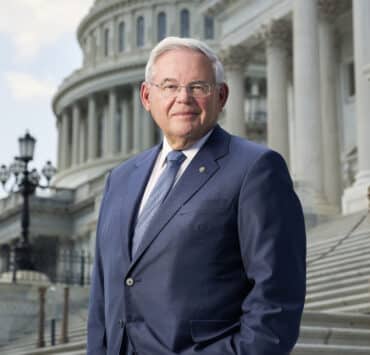|
Getting your Trinity Audio player ready...
|
When the last vote was tallied for the 2020 election, and the media began analyzing the results, they were surprised. Report after report was released on “the Latino vote,” and pundits across the nation concluded with astonishment that many Latinos, in many different parts of the country, vote . . . well, differently.
But no one should have been surprised. It should not have been news to anyone that the Latino community is as complex as America itself, full of geographical as well as religious, cultural, socioeconomic, and generational divides. And the media—as well as all the polling agencies entrusted to determine voter sentiment—would have known that if they had had Latinos employed throughout their organizations and in key positions to provide thoughtful input on this important demographic.
But this letter isn’t about politics. It’s about an incredible and unbelievable gap in knowledge that exists in the halls of power and boardrooms alike—a lack of awareness about and insight into the second-largest population in this country, which (per the 2020 census) is sixty-two million people strong and still growing.
The facts are undeniable. If you don’t have an intentional approach to reaching the Latino market at all levels and in all facets of your organization, you will not succeed, and your market dominance will prove itself to be unsustainable. Or, as my friend Dr. Robert Rodriguez more starkly puts it, “If a company does not have a Latino strategy, it does not have a growth strategy.”
We see this every day in the business world. As our cover star Senator Bob Menendez (D-NJ) has seen firsthand, small newspapers have shuttered their doors because they chose not to embrace the fact that their once-all-white communities now have substantial Latino populations. International conglomerates have forgone millions of dollars because they don’t have an intentional strategy for targeting a community with close to $1.5 trillion in purchasing power.
As Lili Gil Valletta, CEO of marketing agency CIEN+ points out, “Inclusion is not an altruistic mission; it’s a superpower to future-proof your business. It’s not about reacting to social pressures or simply chasing representation, but anticipating market shifts and expectations with data, committed action, and dollars.”
And inclusion is not difficult to achieve. It is not difficult for organizations that have been publicly advocating for diversity in leadership to put those good words into action and ensure that the members of their C-suite and boardrooms are fully informed about the complex markets and communities of our nation.
It comes down to two things: being intentional, and taking action.
Of course, getting off the metaphorical couch isn’t always easy. External forces like state and federal legislation can require organizations to be purpose driven. We have already seen that with California’s AB 979 legislation and could see yet further impact through the legislation proposed by Senator Menendez in the Improving Governance Through Corporate Diversity Act of 2021.
But there is no need to wait for such legislation to be passed. HR leaders can seek out and help retain diverse professionals for every open position at their organization. Executives managing the supply chain for their company can ensure that every vendor they are working with puts diversity and inclusion at the forefront of their strategy.
And legal professionals—including every single attorney featured in this issue—have a unique opportunity, given their role, to leverage their power to advance Latinos, whether that’s by demanding diversity from their partners or demanding it from themselves and their internal teams. More than that, legal leaders who position themselves as partners to the business have an opportunity to help set a vision and craft a strategy for their business that will ensure its ability to compete both in the present moment and beyond. They can make the case for diversity and help their business grasp the fact that a truly growth-centered, sustainable strategy—one that leads to wins in the marketplace—is a strategy that puts Latinos at the center.

